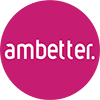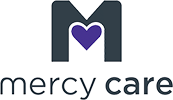
ADHD Treatment

What Is ADHD?
A Disorder That Goes Beyond Distraction
Attention-Deficit/Hyperactivity Disorder (ADHD) is a recognized neurodevelopmental condition that involves persistent patterns of inattention, hyperactivity, and impulsivity that go beyond what is typical for a person’s age group.
Nearly 1 in 10 children and about 1 in 20 adults in the U.S. live with ADHD, though many remain undiagnosed. ADHD left untreated can significantly impact an individual’s daily responsibilities.
Lifeline Behavioral Health offers evidence-based ADHD counseling and treatment to help individuals improve focus, manage impulsivity, and build the structure needed for long-term success.

ADHD in Children and Adolescents
Early Symptoms and Challenges
ADHD looks different at every stage of life. Children with ADHD may struggle with focus in the classroom or restlessness at home. Adolescents often face impulsive choices, academic pressure, and conflict with parents or teachers. Identifying ADHD symptoms early allows for timely intervention.
Lifeline provides ADHD treatment for children and adolescents, tailoring behavioral interventions and family support to help them thrive.

ADHD in Adults
Finding Focus and Balance in Everyday Life
Adults may experience chronic disorganization, poor time management, difficulty sleeping, and balancing work. Many adults discover ADHD after years of struggling with c tasks or social relationships.
Treatment options for adults may include behavioral therapy, ADHD medications, and strategies for organizing tasks.
A Lifeline to the Life You Deserve
Taking the first step toward healing is powerful, and our team is here to guide and support each client every step of the way.
ADHD Treatment Options at Lifeline Behavioral Health
Professional Support That Adapts to You
ADHD treatment is most effective when it’s personalized. At Lifeline Behavioral Health, we focus on you, how ADHD is affecting your daily life, and what you need to feel supported.
Behavioral Therapy & Counseling
Behavioral therapy is a key part of ADHD treatment. Our clinicians use Cognitive Behavioral Therapy (CBT) and Dialectical Behavior Therapy (DBT) to build coping skills, reframe thought patterns, and manage frustration.
ADHD Medications & Management
Stimulant medications are often the first choice for ADHD, improving attention, focus, and impulse control. For those who cannot tolerate stimulants, non-stimulant options or certain antidepressants may be effective. Our psychiatric providers will guide this process and make adjustments.
Skills Training & Behavioral Interventions
ADHD impacts time management and makes problem-solving difficult. Skills training helps clients create systems for managing responsibilities and building consistency. Structured behavioral interventions provide tools to improve focus and build independence.
Family Support & Education
Because ADHD affects more than the individual, family members are often included in treatment. Parents may receive training on behavior management strategies, while adults improve communication with partners and loved ones. Family sessions strengthen relationships, reduce frustration, and create a supportive environment for success.
Symptoms of ADHD
Recognizing Inattention, Hyperactivity, and Impulsivity
ADHD shows up differently for everyone, but many symptoms create challenges in focus, organization, and staying on task.
Trouble Staying Focused on Tasks
Difficulty Following Instructions
Frequently Losing Items Like Keys or Phone
Poor Time Management
Forgetting Daily Responsibilities
Constant Fidgeting or Restlessness
Interrupting Others
Difficulty Remaining Seated
Acting Without Thinking
Feeling “Driven by a Motor” or Always On the Go
Struggling to Wait Turns in Conversations
Inner Restlessness

ADHD Diagnosis & Evaluation
Getting the Right Assessment
ADHD is diagnosed through a comprehensive evaluation. Our licensed providers use clinical interviews, history, and behavior rating scales to understand patterns across school, work, and relationships.
For children, input from parents and teachers is often included. Our team conducts thorough assessments to ensure an accurate diagnosis and an effective treatment plan.
Client Successes
No Insurance? No Problem.
Not everyone has insurance, and that shouldn’t stand in the way of getting help. We offer cash pay options for all services, making care more accessible and straightforward. Many clients prefer cash pay for its flexibility, especially for lower-cost treatments. Reach out to explore your options and get started today.

Your Path Forward with ADHD Treatment
ADHD may bring daily challenges, but it doesn’t define your future. With the right tools and support, focus, stability, and confidence are within reach.
For over 20 years, Lifeline Behavioral Health has helped individuals and families in Arizona find practical solutions through evidence-based care. We’re here to meet you where you are.
Insurance Coverage
Here at Lifeline Behavioral Health, we understand that paying for care is a number one concern. We accept many types of insurance plans. Don’t see your carrier on the list? Not to worry, just give us a call and we can verify your insurance plan. Our team can also work with you on paying for care outside of insurance or utilizing out-of-network benefits.

















"*" indicates required fields
Frequently Asked Questions About ADHD
What is the best way to manage ADHD?
ADHD is best managed with a combination of behavioral interventions, skills training, and, when appropriate, ADHD medications. A multimodal approach is often the most effective treatment.
Can a person with ADHD live a normal life?
Yes. With effective treatment and supportive strategies, people with ADHD can succeed in school, work, and social relationships.
What is the best lifestyle for someone with ADHD?
Consistent routines, regular exercise, adequate sleep, and a healthy lifestyle can all improve focus and reduce impulsivity.
How do ADHD medications work?
They regulate brain chemicals such as dopamine and norepinephrine, helping improve attention, impulse control, and emotional regulation.
Can ADHD be treated without medication?
Yes. Therapy, organizational skills training, mindfulness practices, and alternative medicine approaches can significantly reduce symptoms of ADHD.
How does treatment differ for children and adults?
Younger children often begin with behavior therapy and are recommended parent training, while adults may benefit from therapy combined with stimulant medications and workplace or daily life strategies.
Are there side effects with ADHD medication?
Possible side effects include decreased appetite, sleep disorders, or irritability. These are closely monitored and can often be managed with dose adjustments or other medications.
What role do clinical trials or ADHD studies play?
Clinical trials and ADHD studies help test new treatment options and alternative interventions. These provide insights into effective treatment approaches and may be recommended by a mental health professional.
What lifestyle changes help manage ADHD?
Consistent routines, support groups, parent training for younger children, and discipline effectively at home can all improve outcomes for children with ADHD.
What is the first step to getting ADHD treatment?
Start with a professional evaluation to confirm the ADHD diagnosis and create a personalized treatment plan with our healthcare providers.

